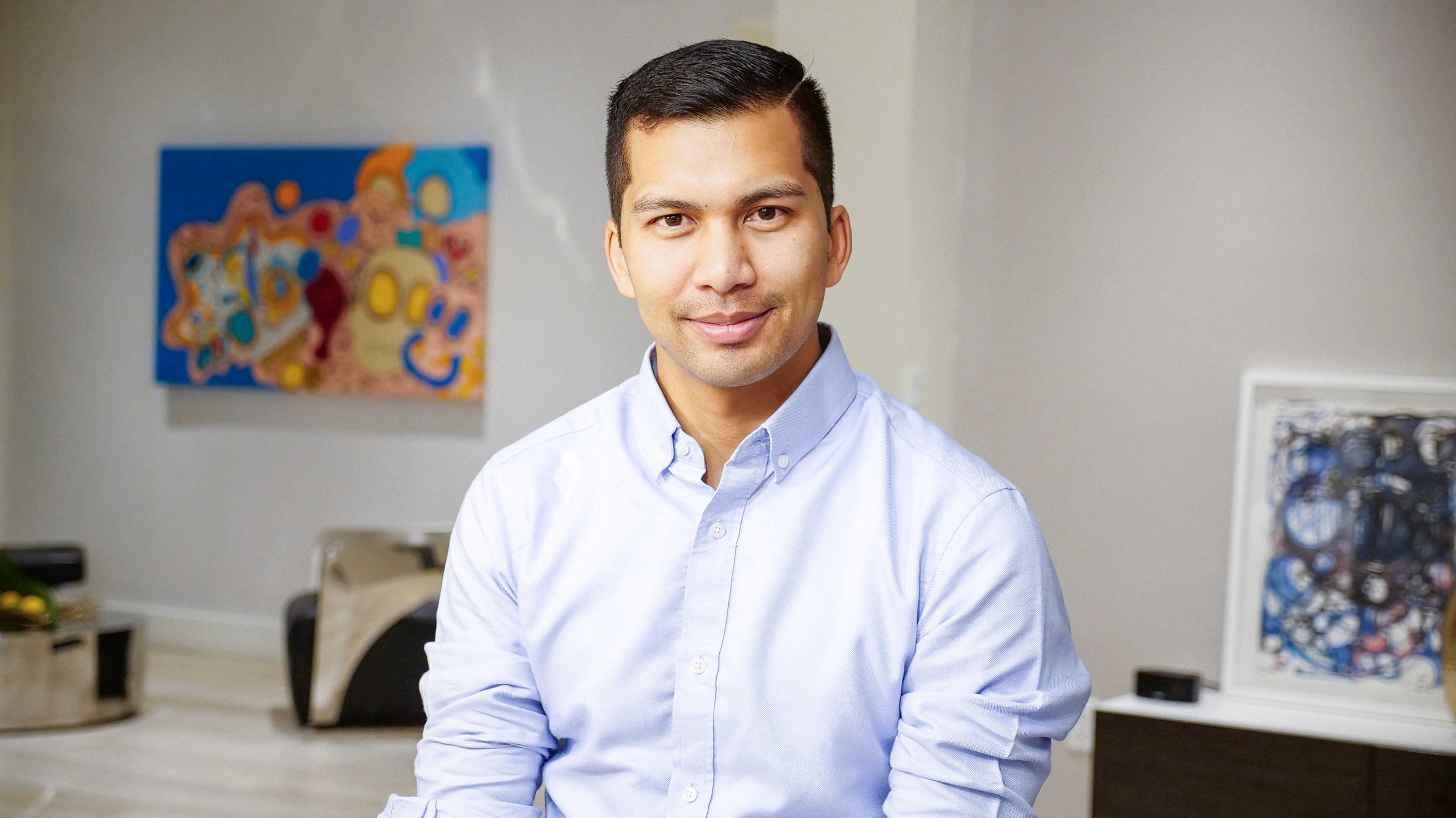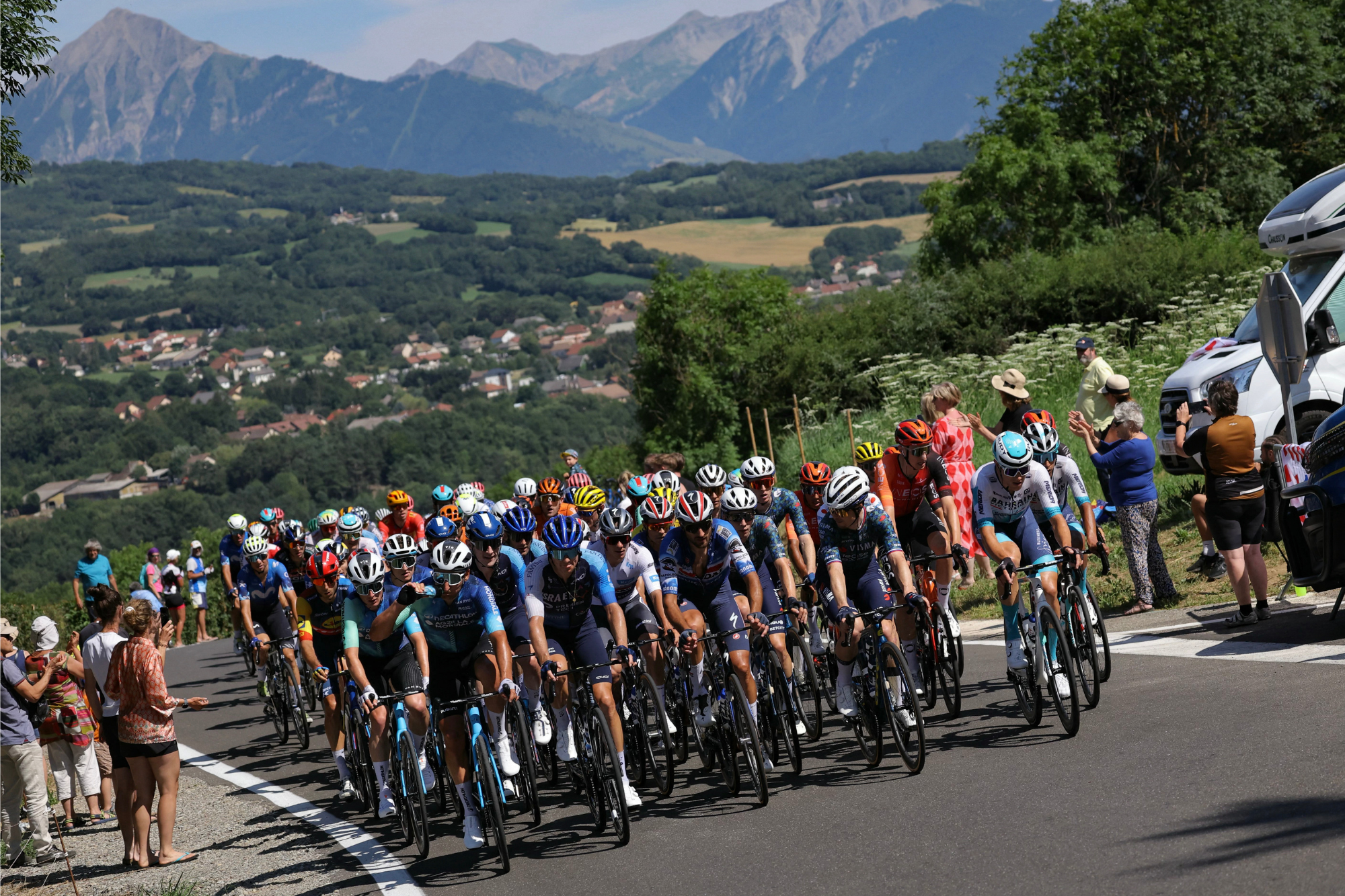'I'm on a mission to build a new superhumanity': Founder of the enhanced games on the future of dope-legal racing
The Enhanced Games are an alternative Olympics where doping will be encouraged. Chris Marshall-Bell grills the founder on the risks


"If Lance Armstrong, after defeating cancer and winning the Tour de France, had stood up and said openly that his comeback from the brink of death was made possible by EPO, then EPO would have been the hottest-selling product of the early 2000s,” Aron D’Souza tells me, a statement that perfectly illustrates his iconoclastic outlook. “Every middle-aged guy would be on EPO if it were available under safe, clinically approved FDA [the USA’s food and drug administration] regulations,” he adds. This is quite the way to start an interview – and there’s more bullishness to come. “It’s a classic misconception to say that performance-enhancing drugs are unsafe. It’s hysteria,” he states. In case you hadn’t guessed, D’Souza is a man on a quest to change sport. Or, as he puts it, “on a mission to build a new superhumanity” – that being, the Enhanced Games, a yearly Olympic style event where athletes would be encouraged to take performance-enhancing drugs.
The enhanced games

An Australian lawyer and businessman who founded the technology company Sargon, D’Souza has turned to sport for his next profit-making enterprise. Not everyone has welcomed his Enhanced Games concept, with two time Olympic gold medallist swimmer Kieren Perkins branding D’Souza a “borderline criminal”. But backed by billionaire investors including Paypal co-founder Peter Thiel, the Australian is promising better pay for athletes and believes that the global sporting arena would not merely benefit from but needs the Enhanced Games. In taking on the Olympic Games, he is challenging the conventional interpretation of fair play in sport. “I think of myself as Uber and Netflix, and they [sport’s governing bodies] are the taxi cabs and Blockbuster,” he says. “It [the Olympics] is an oppressive and exploitative system, and we’re creating a better one.”
Let’s start with a basic question: are the Enhanced Games – coined the ‘doped games’ by many – what the world really wants or needs right now? “The reality is, the Olympics has too many sports, and it’s difficult to really understand what’s going on,” D’Souza, 39, tells me by video call from his office in London. “A lot of journalists say: ‘Oh, you’re just creating the Olympics plus drugs,’ but that’s not right. We’re reinventing sport from the ground up.”
D’Souza intends to host the first event in an as yet-unconfirmed host city in 2025, before ultimately developing a yearly series of around six rounds and a grand finale. Only five sports – athletics, swimming, gymnastics, combat and weightlifting – would be included in the first year, with more, including cycling, slated to follow in year three. In D’Souza’s view, despite record global viewing figures from Paris 2024, the Olympics aren’t compatible with modern-day media consumption, and its athletes are too poorly paid. “The Olympics brings in $4.5bn in media revenue [and ticket sales] and none of that goes to the athletes,” he says.
The IOC claims that it returns 90% of its income back into sports, but it is true that only a small slice goes directly to athletes. “I sincerely believe the athletes are the core value-creators of sport and they should benefit from the revenues they generate. Excellence deserves to be rewarded.”
Evidence based approach
Few would disagree with D’Souza on income distribution, but which sponsors would want to be associated with an event that would, to quote the Australian swimmer James Magnussen, who has already signed up to the proposed Games, “juice to the gills” competing athletes? “We’re opening up a whole new dimension of the sport which at the moment doesn’t exist,” D’Souza says. “The human enhancement market is one of the largest industries in the world and we’re the flagship event for marketing these products.” The main problem D’Souza faces is a sceptical and fearful public. Performance-enhancing drugs are detested by most sports fans.

“Let’s talk about safety and science,” D’Souza says, pre-empting and relishing my next question. He shares his screen with me, showing an Imperial College of London review into the societal risk of a range of social and performance-enhancing drugs. He highlights how alcohol and class-A drugs are all deemed a greater risk than anabolic steroids, but brushes over the fact that steroids are still deemed a notable threat. “Administered with clinical supervision, we can lower the risk [of PEDs] even further,” he says confidently, without explaining how. “We support PEDs because clinical evidence is very supportive and there’s decades of research.”
The latest race content, interviews, features, reviews and expert buying guides, direct to your inbox!
Cycling to come
Michael McNamee is a professor of applied ethics at Swansea University, specialising in sports ethics.
“Let’s start with the positives: the idea that traditional sport doesn’t take care of its principal stakeholders, the athletes, is a fair claim. That’s a good starting point, an attractive one. But I wonder what concept of sport Aron [D’Souza] has: is it about athletic excellence or about spectacle? Is what he is promoting actually a 21st-century circus with big freaks in sporting clothing, because that’s what it looks like.
“If you’re going to say you’re athletecentred, then you have to recognise athlete health as well. It looks like the Enhanced Games will be a libertarian games, where people can take whatever risks they want to take. What would medically supervised doping actually look like? The assumption is that professional doctors would help athletes to get to their limits of what’s possible while maintaining health, but that’s a staggeringly naive view. Which doctors would do this, and who’s going to pay for them? Will the drugs have quality assurance with respect to production and safety?
“If it was a free-for-all, deaths would follow; they’d need a regulatory framework. So then it wouldn’t be enhanced versus clean games, but a debate about where we draw the line – a line some would likely go beyond. We’re being sold a radical new idea of how sport can be organised differently. In reality, all it’s doing is moving the line.”
Is his proposed tournament a freefor-all where anything goes? “We support drugs that are performanceenhancing but not ones that are unsafe or against the spirit of sport,” he responds. What’s an unsafe drug? “Class-A drugs – the government bans them for a reason. You can’t do a line of cocaine before competing at the Enhanced Games.” According to the Enhanced Games website, all competitors will undergo “extensive medical profiling” – including gene sequencing – prior to competition to ensure they are “safe to compete”. This raises further ethical conundrums.
Assuming these are resolved, which forms of enhancement would be deemed unsafe in a world where athletes are free to take a cocktail of EPO, testosterone and human growth hormone? “We don’t want athletes to cut off a limb and put carbon-fibre legs on,” he answers, deadpan.
Born in Melbourne, Australia, D’Souza is a lifelong cyclist, telling me, “I rode pretty seriously when I was at uni in Australia.” Rugby became his sport when he studied law at Oxford University, and since then he has competed in triathlon. I ask why cycling isn’t included for the planned first year of the Enhanced Games? “Why did we pick the five sports we picked? Because they are easy to deliver without expensive infrastructure,” he states. “The reality is, cycling is a very expensive sport to put on… and it doesn’t have the same return on investment that other sport categories do. Track cycling is a fabulous event, but only a few thousand people in the world compete in that sport. It’s pretty niche… and has very high costs that we’re keen to avoid.”
All the main cycling disciplines – time trial, road racing and track – are scheduled to be on the programme in future years. Have any cyclists contacted him? “A couple of cyclists have, yes.” Who? “Current professional cyclists.” He won’t divulge identities, but I’m intrigued as to what these riders have asked him. “They say: ‘Please can you include cycling.’ I tell them it doesn’t make sense now from an economic standpoint.”
So, if the Enhanced Games turns out to be as successful as he believes, would he consider starting a stage race? “In terms of multi-day road racing in the style of the Tour de France, there are more serious risks associated with that.”
Grand tour qualms

Hang on, he’s just told me that PEDs are safe, yet now he is doubting the safety of PEDs for a multi-day endurance sport. Isn’t this a contradiction? “No, no, it’s a different risk,” he shoots back. “Nothing is 100% safe – crossing the street, driving the car... The risk of PEDs is significantly lower than other commonly accepted risks.” This is a politician-like dodge of the question. What are the specific risks of taking PEDs in a stage race? “One is that it carries different kinds of risks.” Like what? He hesitates. “Well, multi-day cycling races push the human body to much higher limits, and use of PEDs in that circumstance is not one I’ve studied very closely yet.” Until now, D’Souza has seemed well prepared and well versed in his arguments, but now he is coming unstuck. If a diet of PEDs is really safe, as he alleges, surely he would have no concerns about hosting an enhanced cycling stage race.
Safety questions aside, why should cycling fans be interested in his project? “Because performance enhancements are at the root of modern cycling,” he says, tarring the whole of pro cycling with the brush, “and we’re unveiling what is possible in humanity. Enhanced athletes are just better, are going to be faster, have longer careers, and will be more interesting than natural athletes.” Ethics aside, it may turn out that logistics and hosting are the biggest hurdles for D’Souza. If he wants to run the inaugural Enhanced Games next year, he is going to need to get a move on. “Building the future is hard, but we’re in negotiations with host cities,” he insists.
A freelance sports journalist and podcaster, you'll mostly find Chris's byline attached to news scoops, profile interviews and long reads across a variety of different publications. He has been writing regularly for Cycling Weekly since 2013. In 2024 he released a seven-part podcast documentary, Ghost in the Machine, about motor doping in cycling.
Previously a ski, hiking and cycling guide in the Canadian Rockies and Spanish Pyrenees, he almost certainly holds the record for the most number of interviews conducted from snowy mountains. He lives in Valencia, Spain.
You must confirm your public display name before commenting
Please logout and then login again, you will then be prompted to enter your display name.
